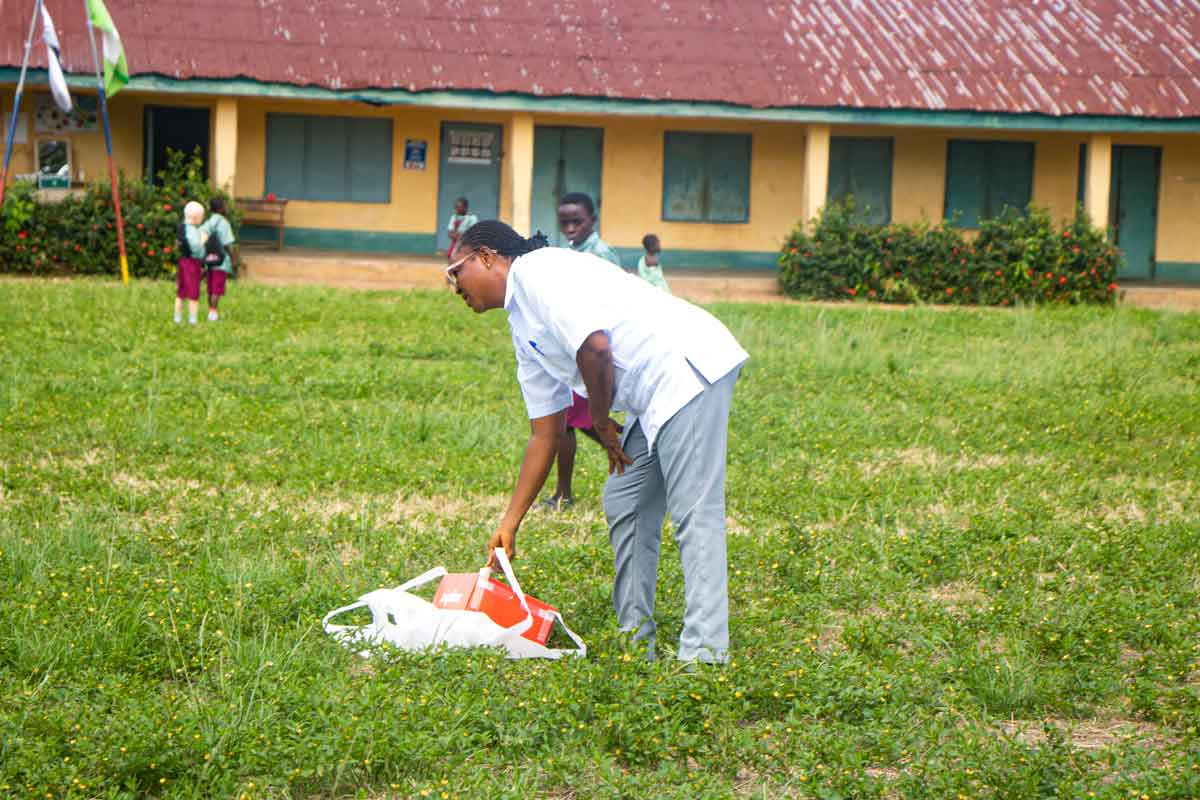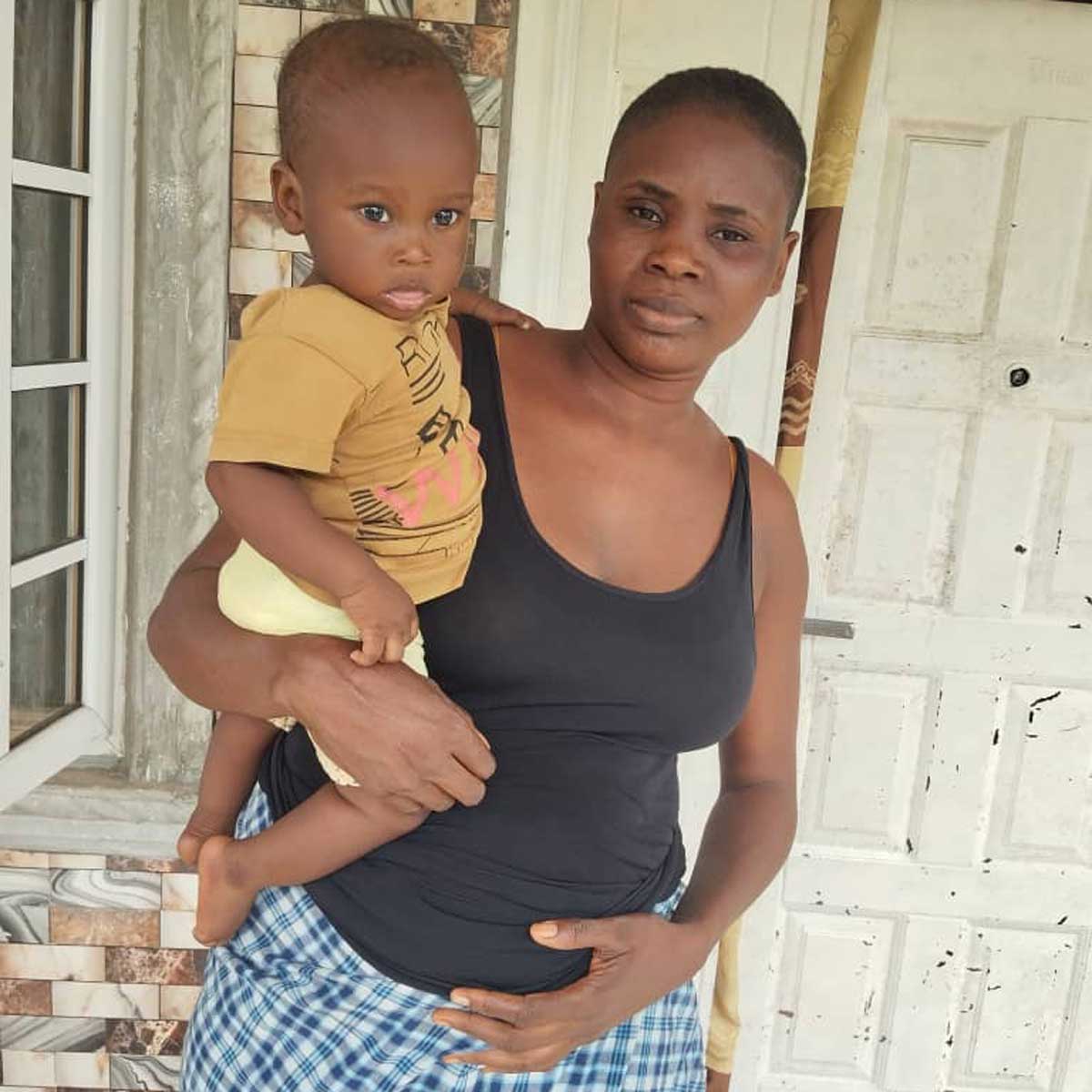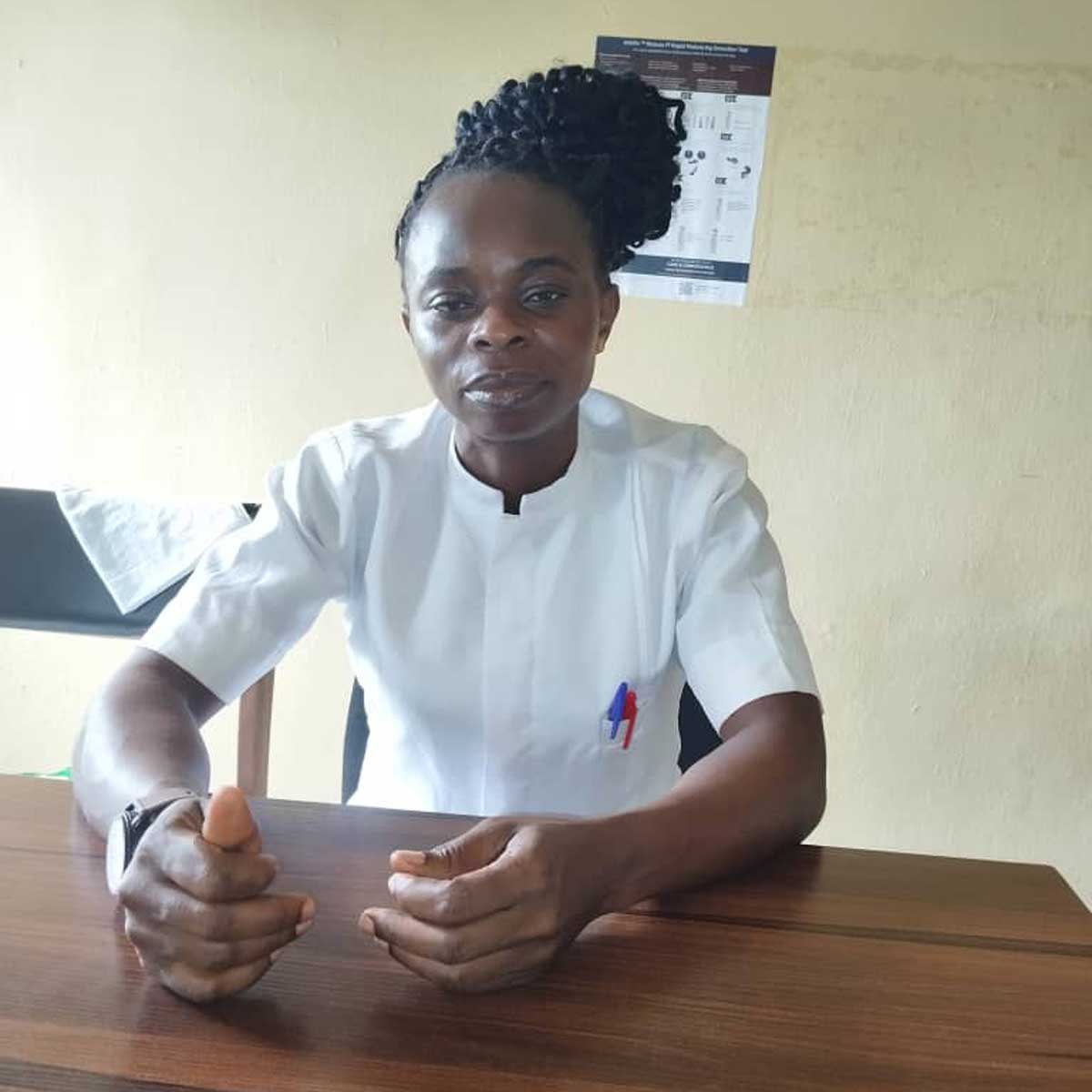Flying malaria vaccines reach isolated Nigerian communities
Drone deliveries have made it possible to get malaria vaccines to 20,000 children – and counting – in otherwise tough-to-reach settlements across Bayelsa state.
- 22 April 2025
- 5 min read
- by Lara Samuel

Seven-month-old Samara Akuma’s malaria vaccine dropped into his life from the heavens. Literally.
Samara lives with his mother, Hope PraiseGod, 25, in the riverine community of Opume, in Ogbia Local Government Area, part of Nigeria’s Bayelsa State. Opume is one of many remote communities in Bayelsa that are considered hard-to-reach by the health system, demanding hours of rough travel by boat or road.
As a consequence, the area contends with frequent vaccine stock-outs, and missed immunisations. “This put vulnerable populations, particularly children and pregnant women, at risk,” said Dr Appah Williams, Executive Secretary of the Bayelsa State Primary Health Care Board.
Luckily for Samara and the 92 other infants vaccinated against malaria in Opume and neighbouring Emakalakala and Akipelai since Nigeria’s malaria programme began late last year, surface travel is no longer the only option for the delivery of life-saving vaccines in Bayelsa. These doses arrived by drone.
Skyborne
Specifically, they arrived by Zipline drone – a white-and-red unmanned mini-plane carrying parachute-equipped cargo in its belly, ready to drop precisely over the health facility in need.
Zipline, a logistics company with a honed specialty in medical drone deliveries, was engaged by Bayelsa to help reach the hardest-to-reach: efficiently,and on time. “So far, this initiative has helped to reach 20,000 people with the first dose of the malaria vaccine in the state,” said Chinedu Amah, the Sales and Partnership Director for Zipline in Bayelsa state.

After Bayelsa indicated interest about two years ago, Amah said, the Zipline team visited the state, assessed potential sites and identified a suitable location for its setup – a logistics hub that functions almost like a mini-airport, catapulting cargo-laden, unmanned drones into the sky, and snagging them again on their return.
The facility was inaugurated in February this year by Governor Duoye Diri. “The value that Zipline brings to the table is mostly in its capability to use drones to access those [hard-to-reach] places in a very quick time.
“Our drones can make the journey in as low as 45 minutes. So it’s been a game-changer for the state in its health system and we’ve shown a lot of value creation within the state using our drones,” Amah said.
Amah emphasised that Zipline has strong relationships with government agencies – from the Nigeria Civil Aviation Authority that regulates the monitoring system Zipline uses to track its drones, to the healthcare system, to military formations across the state.
Landfall
Frank Aduyineguwo, a community health extension worker in Opume, said drone-delivered malaria vaccines have changed the face of primary healthcare in the community.
Aduyineguwo, said he places orders for the vaccine through his Coaching Officer, who alerts Zipline of the number of malaria vaccines needed in the community.
“I am a team lead. I am also a vaccinator – we also receive malaria vaccines. We call for them to come here for vaccination. We also have a house-to-house mobiliser, and the response from the community has been amazing.”
“Immediately we make the demand, they supply. They deliver the malaria vaccines free,” added Okpokpo Azibaloghom, a junior community health extension worker and health facility volunteer.
Meanwhile, Samara’s mother, Hope PraiseGod, told VaccinesWork that her child has been in good health since receiving his first malaria vaccination. “He hasn’t been sick since he received the vaccine, and I’m happy with the programme. The malaria vaccine is truly helping us.”
Other mothers whose children have benefitted from drone-aided malaria vaccinations echoed her.
Have you read?
“Drastically reduced stock-outs”
There’s data to back up the impressions of local health workers and parents. Dr Williams of the Bayelsa State Primary Health Care Board told VaccinesWork, “Our distribution centre, serving hundreds of health facilities and community sites across a 38,000 square-kilometre radius, has drastically reduced stock-outs to below 1%. Deliveries now arrive within 15–45 minutes, regardless of weather or terrain, significantly improving coverage and timeliness.
“Working closely with the Bayelsa State Government and partners like Gavi, we used data-driven mapping to identify high-prevalence zero-dose clusters and establish hundreds of delivery sites throughout the state. These new delivery points have enabled, for the first time, routine access for marginalised communities to malaria vaccines and primary health commodities directly to community health workers embedded in these areas.

“This approach has been a game-changer. By leveraging drones for precision delivery, we’ve eliminated the need for health workers to travel hours by boat to collect vaccines. Instead, the malaria vaccine and essential health products arrive on demand, swiftly and reliably, ensuring cold chain integrity and eliminating all missed opportunities to vaccinate and treat patients.”
Dr Williams believes that technology alone is not enough to address healthcare gaps, stressing the importance of partnerships, community engagement and human-centred delivery models.
“By integrating drone delivery with grassroots mobilisation, we are helping the state rise in the ranks for vaccination coverage and ensuring that no community’s child should be beyond the reach of life-saving vaccines,” he added.





